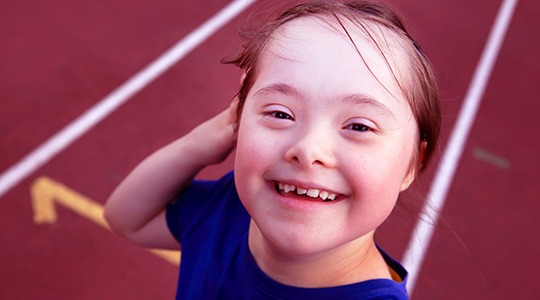Receiving a prenatal diagnosis of Down syndrome can be extremely emotional for many parents. Yet according to Sue Levine, who conducted a six-year study of individuals with Down syndrome and their parents and siblings, published in the American Journal of Medical Genetics, most parents and siblings found the experience of raising a child with Down syndrome richly rewarding.
“[Parents] affirmed that true success in life is not measured by accomplishments or possessions, but by love and small victories. While there are certainly struggles, as there are with parenting any child, the joys tend to far outweigh the difficulties.”
One of the first things to do if you receive a prenatal diagnosis of Down syndrome is to arm yourself with as much knowledge as possible.

What is Down syndrome?
Down syndrome is a genetic condition, also known as Trisomy 21. Our bodies are made up of millions of cells and in each cell there are 46 chromosomes. People with Down syndrome have 47 chromosomes; they have an extra Chromosome 21.
It’s not yet known why this occurs. It can occur in children of parents of all ages, across all ethnic and social groups.
What will it mean for your child?
A child born with Down syndrome is an individual, first and foremost. Just like every other child, there are certain physical characteristics common to Down syndrome; they will share more physical features with the rest of their family than they do with other children that have Down syndrome.
Every child with Down syndrome will have some level of intellectual and developmental disability, but the level of delay varies hugely. Children may take extra time/longer to meet developmental milestones such as walking and talking.
Experts recommend Early Intervention in development as soon as possible to give children with Down syndrome the best possible start.
As Susan Skallerup says in her award-winning book, Babies with Down Syndrome: A New Parents’ Guide, early intervention means “intervening early in a child’s life to encourage growth and development”.
An Early Intervention program may include:
- Speech and language therapy for communication problems
- Physiotherapy and exercise programs for better muscle tone
- (Occupational Therapy to develop fine and gross motor skills)
- Individualised educational support in the home to help meet developmental milestones and improve educational outcomes.
There are also some special physical complications associated with Down syndrome.
Up to 50% of children with Down syndrome are born with a congenital heart defect. Doctors will carefully assess a baby as soon as possible to see if surgery is necessary.
Children with Down syndrome are also at higher risk for digestive, hearing and vision problems. It is important to connect with specialist medical professionals, therapists and support services to ensure that your child can be as happy and healthy as possible.
Establishing Your Support Network
In Australia, there are a number of bodies which provide assistance, advice and support for those with Down syndrome.
Down Syndrome Australia is the peak body in Australia and works with local associations to provide resources and support for families and people with Down syndrome. They offer a number of workshops, support groups and information sessions where families with children can link together, share experiences and get more in depth information about their child’s specific support needs.
Children with Down syndrome are also eligible for NDIS (National Disability Insurance Scheme) funding, which means that you can receive support from professionals at home.
Zest Care has over 16 years’ experience providing In-Home Child Care to families throughout NSW and more recently, NDIS Supports. Their team of dedicated support workers is experienced in bringing the best out of children and nurturing their development. Find out more today and help your family start the life they want, today.
Resources:
Https://www.parents.com/health/down-syndrome/down-syndrome-resources/
Https://www.downsyndrome.org.au/what_is_down_syndrome.html
Https://www.nhs.uk/Conditions/Downs-syndrome/Pages/Symptoms.aspx








